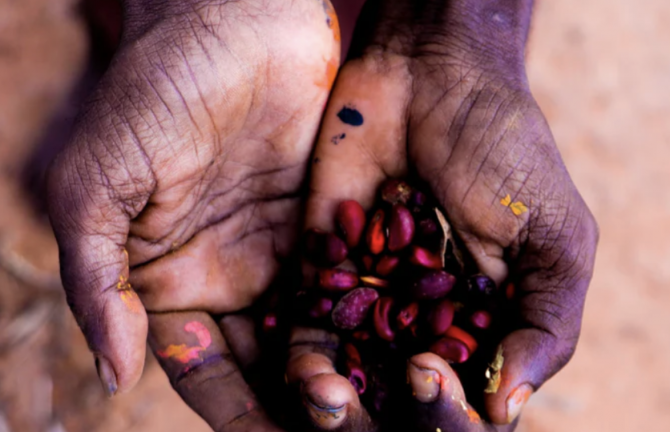
MMeets
UNTOLD x Painting on Country
Free!
All visitors over the age of 12 must show their COVID-19 vaccination certificate as a condition of entry.
For full details on staying COVIDsafe at MPavilion 2021, read our Covid-19 Safe Plan
This event is now complete. If you want to revisit the talk, visit our Library, or subscribe to the MPavilion podcast via iTunes, Pocketcasts, Stitcher, Spotify, or wherever else you get your podcasts.
Recordings
Watch more
Painting Country is about more than words can convey. It is at the heart of some of Australia’s most vital creative, cultural and political movements. To paint Country is to make visible a world of meaning and values that are otherwise often lost in translation.
Aboriginal artists, diplomats and intellectuals have continually sought to cross the divide of cross-cultural ignorance and misunderstanding though the sharing of their Country. From the Yirrkala Bark Petitions, the Barunga Statement, the evolution of the Western Desert painting movement and contemporary Art Centres, to the presentation of the Uluru Statement from the Heart, painted Country is how Australian have been asked to listen, and learn. Yet the importance of Country, and the complexity of painting it, is often reduced to the simplistic, landscape-driven language. Worse yet, it is often lost in the language of ‘art’.
So what is Country, why does it matter, and why do so many of the most important documents in Australian History draw upon its authority?
To explore the creative and political importance of painting Country today will be an esteemed panel including Claire G. Coleman, Noongar woman and acclaimed writer, Sally Scales, Pitjantjatjara woman, artist and advocate, Professor Clare Wright OAM, historian, author and broadcaster, and Professor John Carty, scholar and Head of Humanities at the South Australia Museum and author of the acclaimed book BALGO: Creating Country
This talk is being presented as part of the program for UNTOLD: Marking Life, Indigenous reflections on continuing/maintaining/living rituals presented by Agency Projects.




